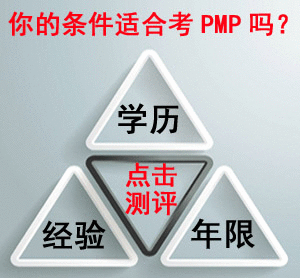PMP英文考試題及參考答案(46)
|
1 The LEAST effective form of communication for complex situations is: A verbal - face to face B written C formal D informal E A and C ans:E 2 Communication plays a major role in: A Planning B Organizing C Controlling D Directing E All of the above ans:E 3 For effective communication, the message should be oriented to the _____. A Initiator B Receiver C Media D Management style E Corporate culture ans:B 4 Input into the Communications Management Plan includes the following information from the stakeholder analysis: A Information needs B Information content C Frequency of distribution D Method of distribution E All of the above ans:E 5 The following individuals are responsible for determining the content of the Communications Management Plan. A Project Sponsor B Task Manager(s) C Director of Communications D Project Manager ans:D 6 The Communications Management Plan should contain the following: A Communications policy B Communications media C Reporting channels D Selection of appropriate media to meet specific needs E All of the above ans:E 7 An effective Project Manager does not share project _____ with the team members. A Vision B responsibility C solution to problems D accountability E status ans:D 8 Using “I” or “My' instead of ”most people“ or ”our group“ ______ message credibility. A decreases B increases C has no effect on D distorts E A and B ans:B 9 The role of the _____ can be invaluable in problem solving. A recognition seeker B devils advocate C dominator D topic jumper E A or C ans:B 10 One of the most common pitfalls in effective communication is: A not selecting the correct medium B nor considering the position of the receiver C assuming that because a message is sent, it has been received D All of the above. E A and B ans:C 11 The most effective team motivator is: A the visibility of the team's contribution B the satisfaction of meeting a challenge C understanding the importance of the project D the individual's professional challenge E All of the above. ans:A 12 Clearly defined group goals are important because they _____. A motivate team behavior B cause inner tension within team members until they are met C encourage member interaction D All of the above. E A and C ans:D 13 A team may not be fully functional until each member A seeks consensus in decision making B feels personal acceptance C depends on the team leader for direction D A and B. E All of the above. ans:D 14 When all members must unanimously agree before a decision is reached A all members become committed B decisions are reached slowly C integrity is developed D future decision making ability is enhanced E All of the above. ans:E 15 Obtaining team commitment depends on: A clear and interesting job assignments B consensus on project goals C involvement in developing task objectives D All of the above. E B and C ans:E 16 When a majority of team members must agree before a decision is reached _____. A some team members may become alienated B future group effectiveness may become damaged. C the PM may lose credibility D the project manager will most likely have to utilize a conflict resolution technique E All of the above. ans:E 17 Traits of a participative manager include: A being accessible B being an effective delegator C holding social gatherings D All of the above. E A and C ans:D 18 The Project Manager has the responsibility of knowing what kind of message to send because his _____ may avoid communications barriers. A business interfaces B output C technical experience D priorities E training methods ans:B 19 Which of the following is NOT a characteristic of message filtering? A semantics B media C ethics D organizational status E reputation ans:C 20 A common mistake in communications is to _____ of the receiver. A overestimate the knowledge B underestimate the knowledge C underestimate the intelligence D overestimate the intelligence E None of the above. ans:A |




